
It allows to keep PV going, with more focus towards AI, but keeping be one of the few truly independent places.
-
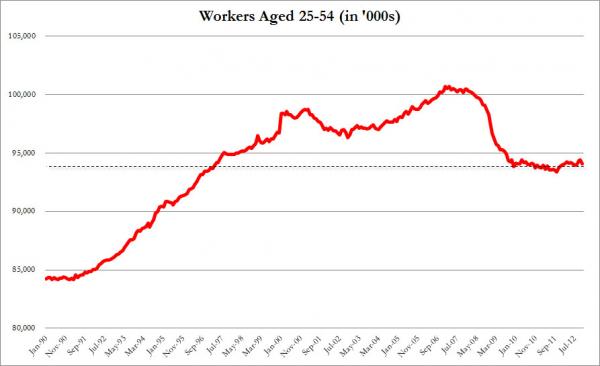
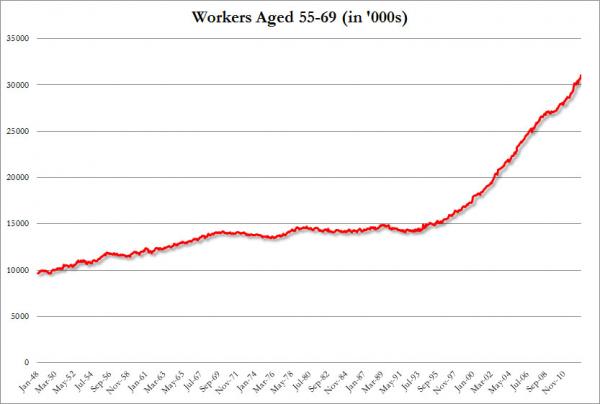
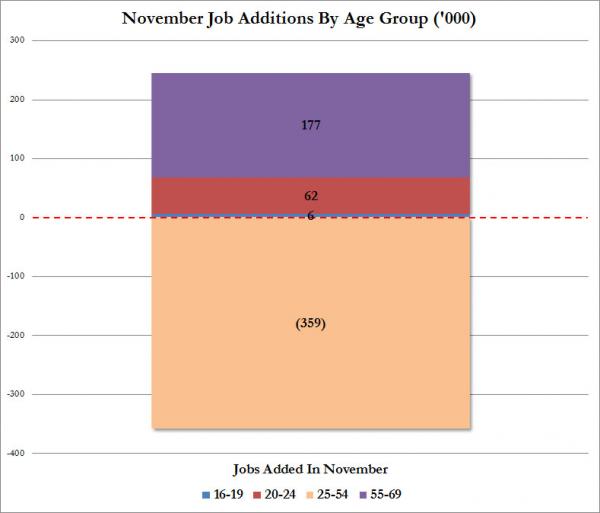
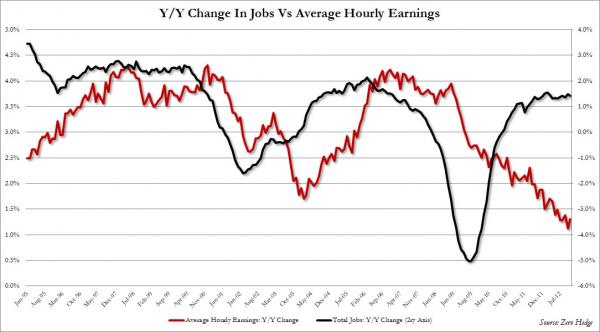
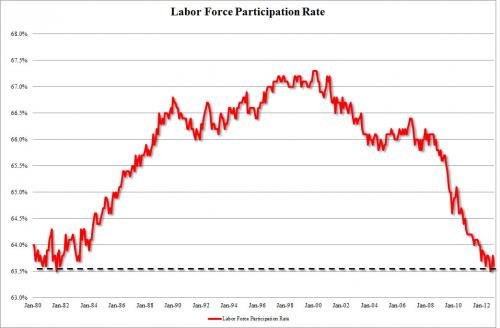
Biggest gain was in retail jobs as expected in part of the Thanksgiving rush, which added +53K jobs, Professional and Business services rose by 43K, of which Administrative and Waste Services was +23K, and Hospitality and Leisure +23K: all low paying jobs. Construction jobs lost: 20K

 unempl1.jpg600 x 366 - 24K
unempl1.jpg600 x 366 - 24K
 unempl2.jpg600 x 404 - 25K
unempl2.jpg600 x 404 - 25K
 unempl3.jpg600 x 513 - 23K
unempl3.jpg600 x 513 - 23K
 unempl5.jpg600 x 332 - 32K
unempl5.jpg600 x 332 - 32K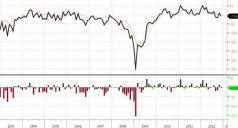
 unempl6.jpg500 x 269 - 23K
unempl6.jpg500 x 269 - 23K
 unempl7.jpg500 x 328 - 23K
unempl7.jpg500 x 328 - 23K -
US government methods for calculating unemployment and inflation are ridiculous. No truth. (and I would guess other governments do the same)
Not to mention the obvious question any self-respecting person would ask - "how can you print money out of thin air and not have serious adverse effects? Who benefits from this and who gets hurt" Answer: you cant print without adverse effects...and re: who benefits...that's a tough one, hmmmm....?
-
Yep, but this guys again thrown out >300K people into nonlabour force.
And we on the last chart you make correction accounting to the much smaller rate of happy full families now compared to 1980, and humber of mothers who no work instead of rising children (hence the rise) it'll be much, much worse looking.
-
Great point re: happy families. If you go back to the 1950's in US, typical family had Dad working 40 hours/week. Now Dad works 47 hours/week and Mom also works 47 hours/week. And the bottom line is they get the same life - home, car, food, some entertainment. Why?-real inflation caused by money printing. Again, who is hurt? The average person. Again, who benefits? Hmmm...who could that be...perhaps Goldman Sachs...maybe Morgan Stanley...big government contractors too...politicians as well...? I dont know really....maybe i'm just joking around. Good fun eh?!
-
And people seems to be optimistic:
More evidence emerged as Smith & Wesson just announced record financial results. From the company’s press release put out after the market close:
Net sales from continuing operations for the second quarter were a record$136.6 million, up 48.0% from the second quarter last year. The increase was led by continued strong sales across all of the company’s firearm product lines, including M&P™ branded products, such as pistols, modern sporting rifles, and the recently launched Shield™ pistol designed for concealed carry and personal protection.
The company expects net sales from continuing operations for the third quarter of fiscal 2013 to be between$126.0 million and $131.0 million, which would represent year-over-year growth from continuing operations in excess of 30.0%.
-
Why?-real inflation caused by money printing.
Oh, please. Wages have been falling since 1970, as the "social contract" gets erased and unions are destroyed. CEOs used to earn a reasonable multiple of the average worker in the company. Now they earn orders of magnitude more -- in some cases, more in a single hour, then two middle-class people earn in a year.
More than 90% of the income gains since 2008 have gone to the richest people in America -- the top 1% and top .1%. Why have the upper income people done spectacularly well, and everybody else has done so badly, if it's the fault of inflation?
There's a much simpler explanation: it's redistribution of wealth on a massive national scale. The increase in corporate profits tracks exactly the fall in hourly wages. Nothing at all to do with inflation.
-
540,000 left the workforce and are no longer counted. A great way to get unemployment down is to just deny these people exist.
-
@jrd I'm in agreement with you re: redistribution of wealth.
But, for starters, there never has been a social contract...anywhere...ever...in the history of mankind. It's always been a world where money and power rule, with the big companies extracting as much from workers as possible.
But to the extent that CEOs and upper level executives are making more than before, your point holds. But I would guess that if you look at my example from the 50's vs now, that amount doesn't account for the bulk of the difference.
I'm in agreement on point of redistribution of wealth...and money printing is a part of that equation. Ill leave it up to whomever is doing the math to assess what factors contribute to what level. But the point/question can't be ignored by any self respecting thinker: why print money out of thin air? When I say inflation...I don't mean some benign after effect of the varied elements of "whatever happened this year to prices"...I'm referring to what has been known for centuries...that inflation is litrerally caused by money printing...and that is a form of wealth resistrubution because some benefit big time and others are hurt.
But I'll leave the various forms of monetary theft/power grabbing to those who want to live that life. ..I've got a movie to make dammit! So I drop my pen and pick back up my hacked GH2.
-
It's always been a world where money and power rule, with the big companies extracting as much from workers as possible.
I happened to live in the country where it was not the case :-)
-
But, for starters, there never has been a social contract...anywhere...ever...in the history of mankind. It's always been a world where money and power rule, with the big companies extracting as much from workers as possible.
If you mean there's never been some sort of documentary evidence, a notarized contract in a vault somewhere, then yes. But the socalled "American Dream" is precisely a social contract long revered.
Also, many top economist feel this unemployment issue is the real problem with the US economy, not the debt crisis (tm).
-
I happened to live in the country where it was not the case :-)
Emphasis on "Was" right? :)
-
Emphasis on "Was" right? :)
Yep. Now I live in your future :-)
-
There's a much simpler explanation: it's redistribution of wealth on a massive national scale.
Again, this does not work. Wealth is non-zero sum. Redistribution of wealth will always lead to disaster, as it's not acknowledging the nature of wealth itself. Limiting power, elitism, and nepotism... now I agree with that... but redistribution is not the answer. Too simple and based on too many fallacies...
We could all be millionaires or we could all be dirt poor. Wealth isn't this win-lose fantasy that everyone makes it out to be. Although, when you treat a 'non-zero' system as you would a 'win-lose' system... the outcome always seems to be 'lose'.
-
A business is a closed system: if the owners pay workers less because the owners want more of the pie, there's no way the workers can make up the difference, except by getting a second job. And that's exactly what's been happening over the last 30+ years -- except you can't keep up with a 2nd job either.
Similarly, the tax system, as rigged by the top 1%, allows for spectacular growth in wealth for those who earn most of their money passively, through capital gains, at the same time infrastructure investment, R&D and social services which benefit the poor and middle class are cut, to make up for the lost tax revenue, Again, another form of wealth re-distribution, because arranging our affairs way makes society as a whole, poorer, while a few individuals get much richer.
When you get business owners complaining to reporters that they can't find competent workers, despite high unemployment, you have a moment of sympathy. But only a moment, because then you find out they want to hire welders with high skills for $10 an hour -- and the thought of paying any more is positively Communistic. Time was, this would be a union job, and such outrages would not possible. Again, re-distribution of wealth.
-
A significant factor in the age distribution in the work force has to do with the WW II "Baby boom" and "Baby boom echo". In the 1990s, we had low unemployment in the U.S., in part, because the generation entering the workforce then was about 6 million fewer workers than 15-20 years earlier when the Baby Boom was making its mark in the work force. Right now the bulk of the "Baby Boom" is from about age 51 or 52 and up with the leading edge already in retirement. Most people assume that the population grows linearly, in all age groups, but it does not. A good resource to see this first hand for countries through the world is International Population Pyramids at census.gov.
College graduates have seen inflation adjusted started pay fall by -14% over roughly the past decade. When we hear of skill shortages, employers and the news media leave out the rest of the statement that we all learned about in economics - "we can't find what we want .... at the price we are willing to pay".
Howdy, Stranger!
It looks like you're new here. If you want to get involved, click one of these buttons!
Categories
- Topics List23,998
- Blog5,725
- General and News1,360
- Hacks and Patches1,153
- ↳ Top Settings33
- ↳ Beginners256
- ↳ Archives402
- ↳ Hacks News and Development56
- Cameras2,367
- ↳ Panasonic995
- ↳ Canon118
- ↳ Sony156
- ↳ Nikon96
- ↳ Pentax and Samsung70
- ↳ Olympus and Fujifilm101
- ↳ Compacts and Camcorders300
- ↳ Smartphones for video97
- ↳ Pro Video Cameras191
- ↳ BlackMagic and other raw cameras116
- Skill1,960
- ↳ Business and distribution66
- ↳ Preparation, scripts and legal38
- ↳ Art149
- ↳ Import, Convert, Exporting291
- ↳ Editors191
- ↳ Effects and stunts115
- ↳ Color grading197
- ↳ Sound and Music280
- ↳ Lighting96
- ↳ Software and storage tips266
- Gear5,420
- ↳ Filters, Adapters, Matte boxes344
- ↳ Lenses1,582
- ↳ Follow focus and gears93
- ↳ Sound499
- ↳ Lighting gear314
- ↳ Camera movement230
- ↳ Gimbals and copters302
- ↳ Rigs and related stuff273
- ↳ Power solutions83
- ↳ Monitors and viewfinders340
- ↳ Tripods and fluid heads139
- ↳ Storage286
- ↳ Computers and studio gear560
- ↳ VR and 3D248
- Showcase1,859
- Marketplace2,834
- Offtopic1,320







